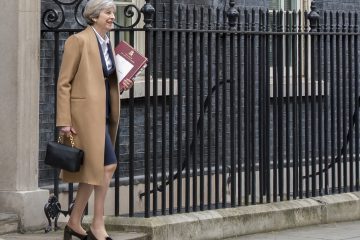
Prime Minister Theresa May’s Early Election Call and the Fixed-term Parliaments Act
Theresa May has this morning announced that she intends to call a general election on June 8 in a bid to increase the size of her parliamentary majority and to reduce the ability of opposition parties to extract concessions from the government during Brexit negotiations. This raises the question of how she plans to achieve the election, given that the Fixed-term Parliaments Act (2011) removed the Prime Minister’s ability to trigger general elections. Under the Act, an early election can only be called under two conditions; (i) if the government is defeated in a vote of no confidence and parliament does not vote to express confidence in a government within two weeks, or (ii) if a two-thirds parliamentary majority endorses …

The Boundaries Review is a chance to bring back multi-member constituencies
In earlier generations voters were spoiled for choice. Between 1832 and 1885 many had more than one vote in general elections. The British parliament contained county and borough constituencies and these, depending on size, would return two to four MPs with voters able to vote for as many candidates as there were seats to be filled. A recipe for chaos, perhaps, but there were advantages to these multi-member constituencies. For instance, the Liberals could put up a left-wing radical as well as a traditional Whig, thus broadening their appeal to the electorate. [One wonders whether such an approach could appeal to the modern Labour party]. The upshot was that electors had a choice of which MP to turn to for …
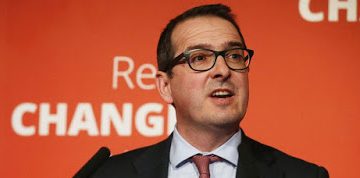
Where did the anti-Corbynites go wrong?
In just under a week, Jeremy Corbyn will almost certainly be re-elected as Leader of the Labour Party – and, if all the credible indications we have are correct, perhaps by a wider margin than the 60 per cent or so of the votes that he received last year. Yet less than a couple of months ago, his position looked worse than precarious. His first nine months in office had been marred by laughable debacle after ludicrous gaffe after embarrassing spectacle. Most of the organised, professional Labour Party at the centre were deeply unhappy with Mr Corbyn’s role in the Remain camp’s defeat in the referendum on Britain’s membership of the European Union. He had either under-performed so badly that he was not fit for his office, …

Blue Labour and Conservatism
Following Labour’s defeat at the 2010 general election, a new intellectual movement, close to the new leader Ed Miliband, began to gain ground within the party. ‘Blue Labour’ is most closely associated with the academic and activist Maurice (now Lord) Glasman and a small group of intellectuals and politicians. The Blue Labour agenda is set out in an ebook from 2011, The Labour Tradition and the Politics of Paradox (edited by Maurice Glasman, Jonathan Rutherford, Marc Stears and Stuart White), at the core of which is a powerful critique of Labour Party thought and policy since 1945. While many Labour supporters, activists and politicians see the achievements of the Attlee administrations as the apogee of the party’s history, Glasman and co. argue that Labour took a fundamentally wrong-turn after the Second World War, jettisoning an earlier Labour tradition of working class struggle, mutual assistance and self-help in favour of a top-down, elitist and bureaucratic model of social democracy. The principle authors argue that this basic settlement survived both the revisionism of Tony Crosland and the changes wrought by New Labour in the 1990s, contributing to the defeat of 2010, and the situation where Labour has alienated large swathes, not just of the middle class electorate, but of its traditional core working class vote as well.
The ebook is unashamedly iconoclastic—at least to those schooled in a more orthodox reading of Labour party history—but perhaps its most unexpected claim is to the mantle of conservatism. In an essay entitled, ‘The future is conservative’, the cultural theorist Jonathan Rutherford argues that Labour,
…needs to rediscover England’s radical traditions that are rooted in the long political struggle against dispossession. This includes reconnecting with an English socialism that grew out of the struggles for land and for the ownership of one’s own labour against the forces of the market and of arbitrary power. In this post-crash era, and in the wake of unregulated globalisation, Labour needs to develop a politics of belonging and a reform of capitalism that draws on the traditions of the common good and a common life.
New Labour, argues Rutherford, was, in the end, insufficiently attentive to those left behind by globalisation, those whose jobs and communities had been sacrificed to the vagaries of the market. Rutherford argues that Labour must reconnect with the long tradition of English radicalism, stretching back over centuries, grounded in the struggles of ordinary working men and women attempting to resist the dispossession and commodification that accompany the spread of capitalism. His conservatism is about the importance of stability and continuity in work and local communities and in recognising the importance of rootedness and a sense of home.
There are strong hints here of the conservative philosopher Roger Scruton’s insistence on the centrality of the experience of home to English identity: “England was first and foremost a place—though a place consecrated by custom.” Scruton is certainly a thinker Blue Labour likes to engage with. In a recent blog post for (the appropriately titled) Conservative Home, the Labour party’s Policy Co-Ordinator, Jon Cruddas MP (also a contributor to The Labour Tradition), reflects on Scruton’s new book, How to be a Conservative: he describes his Conservatism as a love of home. By which he means the common life and inheritance that belongs to “us”, the people, and which grows out of everyday life. Home is our customs, habits and language, our neighbourhoods and the landscapes we live in. It is also the generations who have been and those to come, the history of our country, and our memories. It is not ethnic in its origins, but it requires integration into its membership.
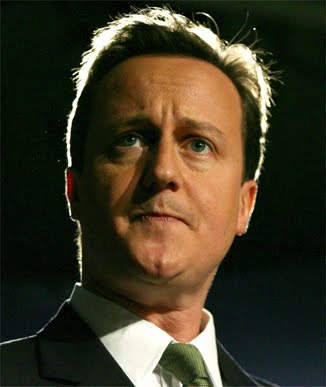
Where is British conservatism today?
On Friday 10th October 2014, Britain woke up to the news that the voters of Clacton-on-Sea had elected a UKIP Member of Parliament. To some, no doubt, this marked the inevitable culmination of the fracturing of the British right that began over twenty years earlier with the ratification of the Maastricht Treaty, under the auspices of the then Conservative Prime Minister, John Major. It was this episode that led first to the formation of the Anti-Federalist League and then to its successor organisation, the United Kingdom Independence Party, in 1993, which has since attracted significant numbers of disaffected Tories, angry at the Conservative’s apparent acquiescence to further European integration. UKIP has grown now to a membership of over 35,000 and seems to be finally breaking out of its single issue, single personality mould, to become a real electoral challenge to the Tories. The recent defection of two sitting Conservative MPs, Douglas Carswell and Mark Reckless, to UKIP, confirms for some people what they have been thinking for a long time: that the Conservative Party no longer does what it says on the tin, that it is, to quote the journalist Simon Heffer, “insufficiently conservative”, the torch of conservatism having now passed to Farage and co.
In this post, the first of three on conservatism in Britain, I want to consider the plausibility of this claim, as part of a broader attempt to determine which political party in Britain today has the most convincing claim to the mantle of conservatism.[1] The answers are by no means clear-cut (they rarely are in politics) and may even seem counter-intuitive. It must be stated at the outset that conservatism is not, by any means, a single, coherent or homogenous ideology. It consists of various branches and traditions and shares similarities with other, nominally distinct, philosophies—notably liberalism. This undoubtedly complicates the task in hand, but it is important to recognise the complexity of the object of study before embarking on the analysis.
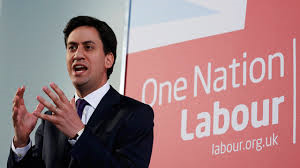
Ed Miliband’s Labour and ideology. Did New Labour change the party forever?
In 2010, Ed Miliband inherited a party troubled by tensions and confusion. After three electoral victories and 13 years in office, New Labour had lost its appeal due to the legacy of the Iraq war, a series of burning scandals and endless backbenchers’ rebellions. Blair had resigned in 2007, replaced by his eternal rival Gordon Brown, with many of those within Labour seeing him as more traditionally left-wing and able to rescue the party from its decline. Yet, the 2008 financial crisis had promptly interrupted Brown’s brief honeymoon with the electorate and Labour had lost the 2010 General Elections, leading to a Conservative-Lib Dem coalition government. Ed Miliband, a young Brownite, then won a bitter leadership contest, in which the main adversary was his brother David, one of Blair’s closest advisors. Ed obtained the support of most of the Unions and of many social-democrats who had at some point started to despise the Blairite model, examples being Roy Hattersley and Neil and Gladys Kinnock. He did so by differentiating himself from the previous leadership, declaring that New Labour was over and running a quite leftist campaign.
Four years later, many question what the current leadership actually stands for and whether Labour has witnessed an authentic ideological revision. On the one hand, Miliband launched the new slogan ‘One Nation Labour’, inspired from a famous Disraeli’s speech, which has been praised as an attempt to revitalise socialism in the context of the current economic crisis, as well as criticized for flirting with rightward doctrines such as compassionate conservatism. On the other hand, he has often declared his preference for an open and pluralist model of leadership and defended the value of a lively internal debate. Therefore, despite describing himself as ‘a European social-democrat who takes inequality very seriously’, Miliband has witnessed and even promoted the rise of a number of ideological sensibilities.
Party factions, think-tanks and research institutes defending sometimes very different positions, such as Progress, Compass, Tribune or Briefing, all contributed to this lively debate.
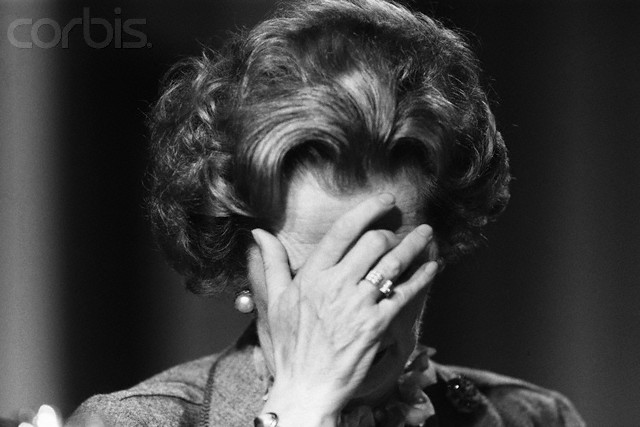
Thatcherism outlives Thatcher
‘We have created the new common ground, and that is why our opponents have been forced to shift their ground…We are told the Social Democrats now see the virtues of capitalism, competition and the customer. We have entered a new era. The Conservative Party has staked out the common ground, and the other parties are tiptoeing onto it.’
“The facts? The facts? I have been elected to change the facts!’’
Lady Thatcher was loved, loathed and never ignored. Thatcher can be classed together with David Lloyd George and Clement Attlee as political leaders who sought power with the express intention of changing society, and did so to the best of their ability. Thatcher was reputedly asked what her greatest legacy was and she answered ‘New Labour’. Peter Mandelson, meanwhile, a doyen of New Labour, stated in June 2002, ‘We are all Thatcherites now!’.

Predicting the Eastleigh by-election
Tomorrow the voters of Eastleigh go to the polls to select a new MP following the resignation of Chris Huhne. The eyes of observers of British politics are keenly trained on the outcome of the by-election because it might give us some early clues to some serious questions about the next election: How are voters going to respond when faced with two incumbent government parties? Is Liberal Democrat support going to evaporate? What is the effect of UKIP going to be?









